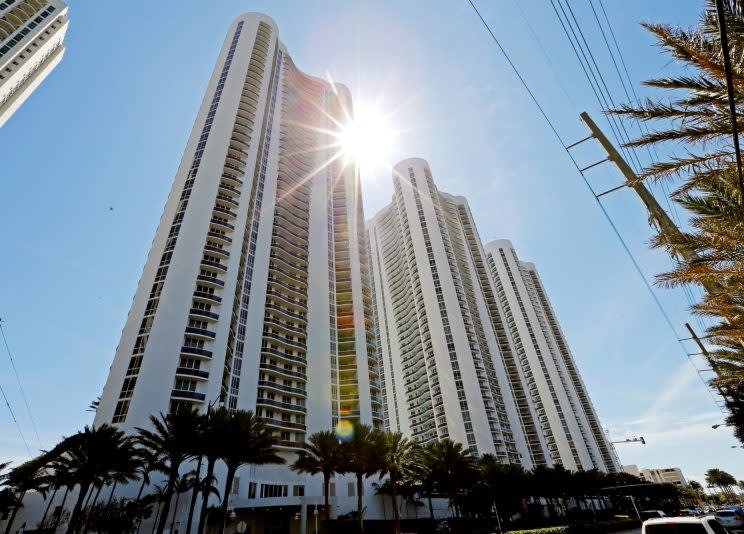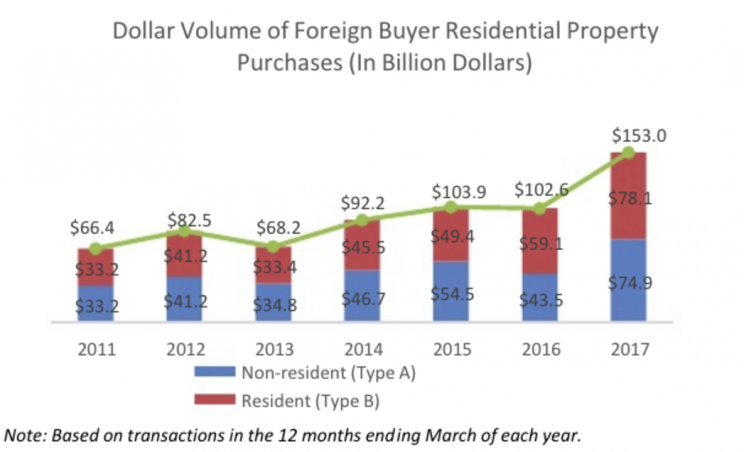Foreigners are buying US residential real estate at a record clip

A tumultuous political environment isn’t scaring international buyers from investing in US residential real estate.
Foreign investment in US residential real estate hit a new high this year, driven by an increase in sales dollar volume from Canadian buyers, according to a new survey by The National Association of Realtors.
Foreign buyers and recent immigrants bought $153 billion of residential property, which represents a 49% jump from last year.

“The political and economic uncertainty both here and abroad did not deter foreigners from exponentially ramping up their purchases of U.S. property over the past year,” said Lawrence Yun, NAR chief economist.
And despite a relatively strong dollar, foreigners are willing to pay a bit more to invest in the US, he said.
“While the strengthening of the U.S. dollar in relation to other currencies and steadfast home-price growth made buying a home more expensive in many areas, foreigners increasingly acted on their beliefs that the U.S. is a safe and secure place to live, work and invest.”
Foreign investors paid, on average, $302,290, a 9% increase from the median sales price last year. Ten percent of international buyers paid over $1 million, with 44% of transactions all-cash purchases.
Canadian interest
The survey reveals that China is still No. 1 in terms of sales dollar volume, but the overall boost in activity came from Canadian buyers.
Transactions from Canadians this year more than doubled from last year, reaching $19 billion – a new high for Canada.
Canadians are finding that US markets though expensive are actually more affordable than in their home country. Though home prices have been steadily rising, gains across Canada have been steeper, especially in Vancouver and Toronto, according to Yun.
Which countries top the list?
Chinese investors purchased $31.7 billion this year, up from $27.3 billion last year and $28.6 in 2015. Buyers from China also bought the most residential units for the third consecutive year.
The top five countries in terms of sales dollar volume after China are Canada, the UK, Mexico and India — all saw increases from last year’s levels.
Where are foreign investors buying?
Mirroring the 2016 survey, investors focused on three states — Florida (22%), California (12%) and Texas (12%). New Jersey and Arizona round out the top five destinations for foreign buyers.
While Florida was the most popular state for Canadian buyers, California was the favorite among Chinese and Mexicans preferred to purchase property in Texas.
Though this survey reveals that foreigners are buying at robust levels, headwinds like the shortage of homes for sale could end up denting sales activity, according to Yun.
“Stricter foreign government regulations and the current uncertainty on policy surrounding U.S. immigration and international trade policy could very well lead to a slowdown in foreign investment,” he said.
Melody Hahm is a writer at Yahoo Finance, covering entrepreneurship, technology and real estate. Follow her on Twitter @melodyhahm.
Read more:
